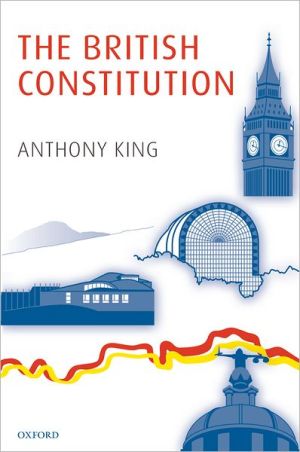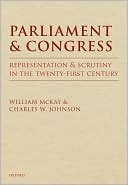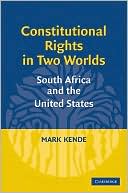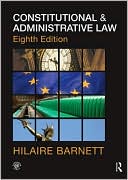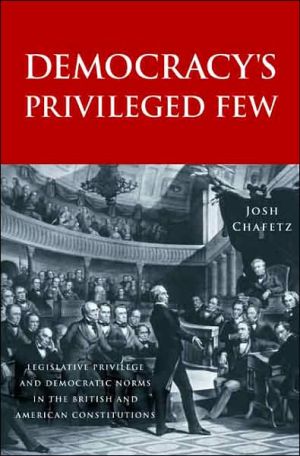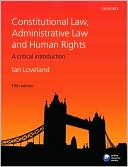Constitutional Review under the UK Human Rights Act
Under the Human Rights Act (HRA), British courts are for the first time empowered to review primary legislation for compliance with a codified set of fundamental rights. Aileen Kavanagh argues that the HRA gives judges strong powers of constitutional review, similar to those exercised by the courts under an entrenched Bill of Rights. The aim of this book is to subject the leading case-law under the HRA to critical scrutiny, whilst remaining sensitive to the deeper constitutional, political...
Search in google:
Under the Human Rights Act (HRA), British courts are for the first time empowered to review primary legislation for compliance with a codified set of fundamental rights. Aileen Kavanagh argues that the HRA gives judges strong powers of constitutional review, similar to those exercised by the courts under an entrenched Bill of Rights. The aim of this book is to subject the leading case-law under the HRA to critical scrutiny, whilst remaining sensitive to the deeper constitutional, political and theoretical questions which underpin it. Such questions include the idea of judicial deference, the constitutional status of the HRA, the principle of parliamentary sovereignty, and the constitutional division of labour between Parliament and the courts. The book closes with a sustained defence of the legitimacy of constitutional review in a democracy, thus providing a powerful rejoinder to those who are sceptical about judicial power under the HRA.
Acknowledgements xi1 Introduction 1The Human Rights Act 1998, Parliament and the courts 1Aims, Structure and Themes 5The scheme of the HRA 9The politics of parliamentary debates 13Part I Questions of interpretation 172 Section 3 and 4 HRA: the early case law 19Introduction 19Making use of section 3(1): the early case law 19Section 3(1) and controversy about the limits of the 'possible' 25Distinguishing between interpretation and legislation 29The 'fundamental features' limit on section 3(1) 37Unanswered questions about the role of parliamentary intent 42'Express terms' and 'necessary implications' 44Conclusion 463 Section 3(1) after Ghaidan v. Mendoza 49Introduction 49Ghaidan v. Mendoza 49Modifying express terms 54Express terms and the semantic lottery 54Section 3 - going with the legislative grain 59Reading in precise words: interpretation versus amendment 63Departing from legislative intent under the HRA 67Section 3(1): a tale of two intentions 68Preserving parliamentary intent whilst protecting Convention rights 70Parliamentary intention: to depart or not to depart? 79Lord Millett's dissent 82Section 3 after Ghaidan v. Mendoza: some general principles 884 Section 3(1) as a strong presumption of statutory interpretation 91Introduction 91Wilkinson: a weak conception of section 3(1)? 92Section 3(1) as a strong presumption of statutory interpretation 95How to rebut the strong presumption 102Ghaidan and Fitzpatrick contrasted 108Conclusion: interpretation and legitimacy 1145 The interplay between sections 3 and 4 HRA 118Introduction 118Section3(1) as a remedial provision 118Section 4 as a 'measure of last resort' 121The argument from 'dialogue' 128Predicting the political response to declarations of incompatibility 133Rights and remedies returned: Bellinger v. Bellinger reconsidered 137Conclusion 1426 The duty of the courts under section 2 144Introduction 144The judicial interpretation of section 2 146Distinguishing Strasbourg case law 149Departing from Strasbourg authority under 'special circumstances' 150The duty not to 'outpace' Strasbourg 153The Convention as a 'floor not a ceiling' 160Conclusion 164Part II Questions of deference 1657 The nature and grounds of judicial deference 167Introduction 167A variable degree of deference 169Deference, interpretation and judicial self-restraint 176Terminological concerns: comity, courtesy or both? 178Minimal and substantial deference 181The argument from institutional competence 182The argument from expertise 183The argument from democratic legitimacy 190Deference for prudential reasons 197A contextual rather than a spatial approach 201Conclusion 2098 Deference in particular contexts 211Introduction 211Deference and national security 211Deference and resource allocation 222Deference and the judicial choice between sections 3 and 4 228Conclusion 2319 Proportionality and deference under the HRA 233The meaning of proportionality 233Proportionality and deference 237Justification and scrutiny 241Proportionality and Wednesbury unreasonableness after Daly 243The advantages of proportionality 253Proportionality and unqualified rights 257Conclusion 267Part III Questions of constitutional legitimacy 26910 The nature and status of the HRA 271Introduction 271The powers of the courts under the HRA 273A power of review 274A constitutional not a legislative power 277The declaration of incompatibility under section 4 281The status of the HRA 293Lack of formal supremacy 293The HRA's legal pervasiveness and the doctrine of implied repeal 294The difficulty of express repeal and relative entrenchment 303Is the HRA a Bill of Rights? 307Conclusion 30911 Parliamentary sovereignty and the HRA 310Introduction 310Reconciling the HRA with parliamentary sovereignty 313Interpretation under section 3(1) 318The declaration of incompatibility 320The last word 322Parliamentary sovereignty and the changing constitutional landscape 324Parliamentary sovereignty and the section 3/4 interplay 328Parliamentary sovereignty and parliamentary intent 332Conclusion 33612 Justifying constitutional review 338Introduction 338Participation, public discussion and individual empowerment 339Responding to the risks of democratic politics 344Responsiveness to popular views and electoral orientation 345Responsiveness to majoritarian concerns 347Responsiveness to short-term interests 348The judicial focus on individuals and rights 352Enforcing constitutional limits on Parliament 356Democracy, distrust and institutional design 361Conclusion 36413 Constitutional review and participatory democracy 366Introduction 366The argument that judges are unelected and unaccountable 368The argument from the equal right of participation 370The argument from the poor judicial record under the HRA 380The HRA: futility or utility? 380Democratic scepticism and judicial deference 385Democratic sceptics as disappointed absolutists 388The argument from political rather than legal limits 396Conclusion 40014 Concluding comments and future directions 404Introduction 404The division of labour under the HRA: collaboration not separation 406Interaction, interpretation and the metaphor of 'dialogue' 408The HRA and parliamentary sovereignty 411Statutory Bills of Rights and strong-form constitutional review 416Conclusion 420Bibliography 422Index 444

